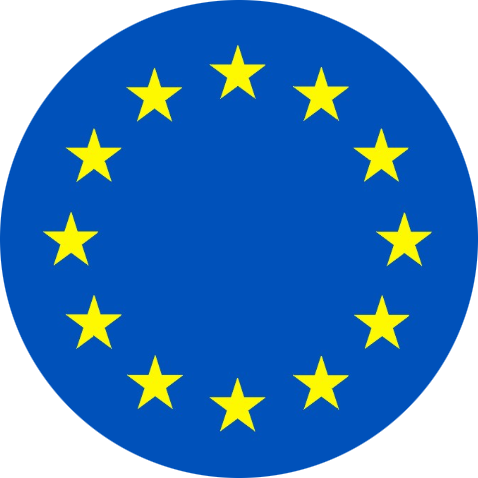In today’s digital age, technology has transformed various aspects of our lives, including education. With the growing popularity of mobile devices, educational apps have become a valuable tool in enhancing the learning experience. Developing a mobile app for education can be a complex process, but with the right guidance, it can be a rewarding experience. In this step-by-step guide, we will walk you through the process of developing an educational app that meets the needs of your target audience.
Educational App Market
Mobile apps have revolutionized the way we access information and interact with the world around us. In the field of education, mobile apps offer immense benefits that traditional textbooks and teaching methods cannot match. The convenience and flexibility of mobile apps allow students to learn at their own pace and access educational resources anytime, anywhere.
As a software development company with a proven track record in building educational apps, WeSoftYou understands the significance of mobile apps in modern education. From our experience, we have witnessed the positive impact that well-designed and engaging educational apps can have on students’ learning outcomes.
The Role of Educational Apps
In the modern education landscape, mobile apps play a crucial role in supplementing classroom teaching and empowering independent learning. These apps provide opportunities for students to engage with interactive content, practice skills, and gain a deeper understanding of the subject matter.
For example, imagine a student studying biology. With the help of a mobile app, they can access virtual dissection tools that allow them to explore the intricacies of the human body in a hands-on and immersive way. This not only enhances their understanding of the subject but also makes the learning process more engaging and memorable.
Furthermore, mobile apps can bridge the gap between theoretical knowledge and real-world application. Students can use simulation apps to conduct virtual experiments in physics or chemistry, giving them the opportunity to test hypotheses and observe the outcomes without the need for expensive laboratory equipment.
Benefits of Educational Apps
Educational mobile apps offer numerous benefits to both students and educators. These benefits include:
- Personalized learning experiences tailored to individual student needs.
- Immediate feedback and assessment of students’ progress.
- Access to a vast repository of educational resources and materials.
- Enhanced engagement and motivation through gamification elements.
- Improved collaboration and communication among students and teachers.
Let’s delve deeper into some of these benefits. Personalized learning experiences are made possible through adaptive learning algorithms embedded in educational apps. These algorithms analyze students’ performance and adjust the content and difficulty level accordingly, ensuring that each student receives a tailored learning experience that suits their unique needs and abilities.
Immediate feedback and assessment are crucial for effective learning. With educational mobile apps, students can receive instant feedback on their performance, allowing them to identify areas of improvement and make necessary adjustments. This real-time feedback helps students stay motivated and engaged in their learning journey.
Access to a vast repository of educational resources and materials is another advantage of mobile apps. Students can explore a wide range of multimedia content, such as videos, interactive quizzes, and e-books, to enhance their understanding of various subjects. This wealth of resources ensures that students have access to up-to-date and comprehensive information, expanding their knowledge beyond what traditional textbooks can offer.
Gamification elements, such as badges, leaderboards, and rewards, can significantly enhance student engagement and motivation. By incorporating game-like features into educational apps, students are encouraged to actively participate in their learning process, making it more enjoyable and stimulating.
Finally, educational mobile apps promote improved collaboration and communication among students and teachers. Through features like discussion forums, chat rooms, and collaborative projects, students can interact with their peers and teachers, fostering a sense of community and facilitating knowledge sharing.
App’s Purpose and Target Audience
Before diving into the development process, it is essential to define the purpose of your educational app and identify your target audience. Understanding the specific needs and requirements of your target audience will help you design an app that meets their expectations.
When defining the purpose of your app, consider the broader goals you want to achieve. Is your app meant to supplement classroom learning? Or is it designed to provide a complete learning experience on its own? By clarifying the purpose, you can ensure that every feature and content element aligns with your overall vision.
Identifying your target audience is equally important. Are you targeting students in a specific age group, such as elementary school or high school? Or are you catering to a broader audience, including college students or lifelong learners? Understanding your target audience will help you tailor the app’s content, design, and user experience to their specific needs and preferences.
App’s Core Functionality
Consider the core functionality of your educational app. What problem does it solve? Does it focus on teaching a specific subject or skill? Identifying the core functionality will help you outline the features and content required to deliver an effective learning experience.
For example, if your app aims to teach foreign languages, the core functionality may include interactive lessons, vocabulary quizzes, and pronunciation exercises. On the other hand, if your app focuses on mathematics, the core functionality may involve solving equations, visualizing geometric concepts, and providing step-by-step explanations.
By clearly defining the core functionality, you can ensure that your app provides a focused and valuable learning experience for your target audience.
Target Audience’s Needs
Conduct thorough research to understand the needs and preferences of your target audience. Consider factors such as age group, educational level, preferred learning styles, and technological proficiency. This information will guide the design and content decisions for your app.
For instance, if your target audience consists of young children, you may need to incorporate colorful visuals, interactive animations, and gamified elements to keep them engaged. On the other hand, if your app targets college students, you may prioritize advanced features, in-depth content, and integration with other educational resources.
Understanding your target audience’s needs will allow you to create a personalized and effective learning experience that caters to their unique requirements.
Educational App Planning
Proper planning is crucial for the successful development of any mobile app, including educational ones. This planning phase involves defining the key features of your app and establishing a budget and timeline for its development.
When it comes to developing an educational app, it’s important to carefully consider the features that will make your app unique and valuable to your target audience. These features should align with the purpose of your app and cater to the specific needs of your users.
Key Features of Successful Educational Apps

Based on your app’s purpose and target audience, determine the features that will make your app stand out from the competition. Some common features of successful educational apps include:
- Interactive lessons and quizzes: Engage your users with interactive content that promotes active learning. Incorporate multimedia elements such as videos, images, and audio to enhance the learning experience.
- Progress tracking and assessment tools: Provide users with the ability to track their progress and receive feedback on their performance. This can help motivate learners and allow them to identify areas for improvement.
- Integration with external educational resources: Enhance the educational value of your app by integrating it with external resources such as e-books, online libraries, or educational websites. This can provide users with access to a wealth of additional learning materials.
- Collaborative features for group projects and discussions: Foster a sense of community and collaboration among your users by incorporating features that allow them to work together on group projects or engage in discussions with their peers.
- Offline access to content for uninterrupted learning: Recognize that not all users will have constant access to the internet. Provide offline access to content, allowing users to continue learning even when they are not connected.
By carefully considering and implementing these features, you can create an educational app that offers a unique and valuable learning experience to your target audience.
Budget and Timeline for App Development
Developing a mobile app requires a significant financial investment and time commitment. It’s important to set a realistic budget for your app development, taking into account factors such as design, development, testing, and ongoing maintenance.
Consider the costs associated with hiring a team of skilled developers, designers, and testers. Additionally, factor in the expenses related to marketing and promoting your app to ensure its success in the competitive app market.
Creating a detailed timeline is equally important. Break down the development process into stages and estimate the time required for each stage. This will help you stay organized and ensure that your app development progresses smoothly.
Some major milestones to consider include:
- Conceptualization and research: This stage involves brainstorming ideas, conducting market research, and defining the goals and objectives of your app.
- Design and prototyping: Create wireframes and prototypes to visualize the user interface and user experience of your app.
- Development: Transform your app concept into a fully functional mobile application. This stage involves coding, integrating features, and testing for bugs and glitches.
- Testing and quality assurance: Thoroughly test your app to ensure its functionality, usability, and compatibility across different devices and operating systems.
- Launch and marketing: Prepare for the launch of your app by creating a marketing strategy, optimizing your app store presence, and generating buzz among your target audience.
By setting a realistic budget and timeline, you can effectively manage the development process and ensure the successful launch of your educational app.
Educational App Design
The design of your educational app plays a crucial role in its success. A well-designed app not only enhances usability but also creates an engaging and enjoyable learning experience for users.
When it comes to designing your educational app, there are several factors to consider. One of the most important considerations is the user interface (UI) and user experience (UX). It is essential to ensure that the UI of your app is intuitive and user-friendly. Users should be able to navigate through the app effortlessly, without any confusion or frustration. Clear navigation, concise instructions, and visually appealing graphics and fonts can significantly contribute to a positive user experience.
Another crucial aspect of UI and UX is the layout of your app. Keeping the layout clean and organized can make it easier for users to find the information they need. Additionally, providing seamless transitions between screens and minimizing load times can enhance the overall user experience.
User Interface and User Experience
Ensure that the user interface (UI) of your app is intuitive and user-friendly. Use clear navigation, concise instructions, and visually appealing graphics and fonts. Pay attention to the user experience (UX) by keeping the app’s layout clean and organized, providing seamless transitions between screens, and minimizing load times.
Moreover, it is crucial to consider the target audience of your educational app. Different age groups and educational backgrounds may have varying preferences and requirements. Conducting user research and gathering feedback can help you tailor the UI and UX to meet the specific needs of your users.
Incorporating educational theories and principles into your app design can also significantly enhance its effectiveness. By leveraging educational theories, you can create an app that maximizes learning outcomes. Consider instructional design models such as the ADDIE model (Analysis, Design, Development, Implementation, Evaluation) or the SAMR model (Substitution, Augmentation, Modification, Redefinition) to guide your app’s content and pedagogical approach.
Educational Theories into App Design
Leverage educational theories and principles to create an app that maximizes learning outcomes. Consider instructional design models such as the ADDIE model (Analysis, Design, Development, Implementation, Evaluation) or the SAMR model (Substitution, Augmentation, Modification, Redefinition) to guide your app’s content and pedagogical approach.
Furthermore, it is essential to align your app’s content with the intended learning objectives. By incorporating educational theories, you can design interactive and engaging activities that promote active learning. For example, you can include quizzes, simulations, or interactive exercises that allow users to apply the knowledge they have gained.
Additionally, consider incorporating features that support personalized learning. Adaptive learning algorithms can analyze user performance and provide tailored recommendations or adaptive content based on individual needs and progress. This personalized approach can enhance user engagement and improve learning outcomes.
Lastly, don’t forget to regularly evaluate and iterate on your app’s design. User feedback and data analytics can provide valuable insights into areas for improvement. By continuously refining and enhancing your app’s design, you can ensure that it remains relevant and effective in meeting the needs of your users.
Develop Your Educational App
Developing an educational app is an exciting endeavor that requires careful planning and execution. Once you have finalized the design and features of your app, it’s time to bring your ideas to life through development. This stage is crucial as it lays the foundation for the success of your app.
Choosing the right development platform is a critical decision that will impact the performance and compatibility of your app. Consider the target operating systems and devices for your app. Should it be developed for iOS, Android, or both? Each platform has its own set of advantages and considerations. By carefully evaluating your target audience and their preferred devices, you can make an informed decision that will maximize the reach of your app.
Once you have decided on the development platform, it’s time to dive into the world of programming languages. Depending on the platform you choose, you may need to learn languages such as Swift for iOS or Java for Android. These languages have their own syntax and conventions, so it’s important to familiarize yourself with them to ensure a smooth development process.
Testing and debugging are crucial steps in the development process. Thoroughly testing your app on different devices and operating systems will help you identify any bugs or compatibility issues that need to be addressed. It’s important to conduct user testing as well, gathering feedback from real users to understand their experience and make necessary improvements. This iterative process ensures that your app meets the needs and expectations of your target audience.
Debugging is an ongoing process that continues even after the app is launched. As users interact with your app, they may encounter issues or provide valuable feedback. It’s important to have a system in place to address these concerns and continuously improve the user experience. Regular updates and bug fixes will help maintain the quality of your app and keep users engaged.
In conclusion, developing an educational app requires careful consideration of the development platform and programming languages. Thorough testing and debugging are essential to ensure a smooth user experience. By investing time and effort into these areas, you can create an app that not only educates but also delights its users.
Educational App Launch and Marketing
Now that your educational app is ready for launch, it’s time to prepare for app store submission and develop effective marketing strategies to reach your target audience.
Launching an educational app can be an exciting and rewarding endeavor. With the right strategies in place, you can make a significant impact on the education industry and help students learn in innovative ways. In this article, we will explore the steps you need to take to prepare for app store submission and discuss effective marketing strategies that can help your app gain traction in the market.
App Store Submission
Before submitting your app to app stores, it’s crucial to ensure that it meets all the guidelines and requirements set by the platforms. This includes adhering to design standards, functionality guidelines, and content policies. By doing so, you can avoid any potential rejections or delays in the approval process.
In addition to meeting the technical requirements, you should also focus on creating compelling promotional materials that will entice users to download your app. This includes creating eye-catching screenshots that showcase the key features and benefits of your app. Craft a compelling app description that clearly communicates the value proposition of your educational app. Consider including video previews that provide a glimpse into the app’s user experience, further enticing potential users.
Effective Marketing Strategies for Educational Apps
Once your app is ready for submission, it’s time to shift your focus to marketing. With millions of apps available in the app stores, it’s crucial to implement a comprehensive marketing strategy to make your educational app stand out among the competition.
Social media platforms have become powerful marketing tools that can help you reach a wide audience. Create engaging content that resonates with your target audience and share it across various social media channels. Consider partnering with influencers or educational experts who can promote your app to their followers, further expanding your reach.
Online advertisements can also play a significant role in increasing your app’s visibility. Utilize targeted advertising campaigns on platforms like Google Ads or Facebook Ads to reach users who are actively searching for educational apps or have shown interest in similar products. By leveraging these platforms’ advanced targeting options, you can ensure that your ads are seen by the right audience.
Content marketing is another effective strategy for promoting your educational app. Create valuable and informative blog posts, articles, or videos related to education and share them on your website or through guest posting on relevant industry blogs. By positioning yourself as an authority in the education space, you can attract users who are interested in educational apps and convert them into loyal users.
Collaborating with educational institutions can also be a powerful marketing strategy. Partner with schools, universities, or online learning platforms to promote your app to their students or members. Offer exclusive discounts or incentives to encourage adoption and create a win-win situation for both parties.
Remember, marketing is an ongoing process, and it’s essential to monitor the effectiveness of your strategies and make adjustments as needed. By continuously analyzing user data and feedback, you can refine your marketing efforts and ensure that your app reaches its full potential.
In conclusion, launching and marketing an educational app requires careful planning and execution. By preparing for app store submission and implementing effective marketing strategies, you can increase your app’s visibility, attract your target audience, and ultimately achieve success in the competitive app market.
Maintenance and Updates of an App
The development of an educational app is an ongoing process. Once your app is launched, it is crucial to gather user feedback and plan for regular updates and new features to keep your app relevant and engaging.
User Feedback for Improvements
Encourage users to provide feedback on their experience with your app. Implement mechanisms for users to report bugs, suggest improvements, and share their preferences. Analyze this feedback to identify areas for improvement and prioritize updates accordingly.
Regular Updates and New Features
Regular updates and new features are essential to keep your educational app fresh and appealing to users. Continuously assess the needs of your target audience and incorporate new educational trends or technologies into your app. Enhancements and new content will keep users engaged and increase the longevity of your app.
Are you ready to revolutionize education with a mobile app? At WeSoftYou, we specialize in software development, including educational app development. Contact us today for a free consultation or project estimation. Together, we can create an educational app that empowers learners and transforms the way we educate.
FAQ
The development timeline for an educational app can vary depending on its complexity and the specific requirements. From our experience, it can take anywhere from a few months to over a year to develop a high-quality educational app.
The cost of developing an educational app depends on factors such as the app’s features, design complexity, and the development platform. At WeSoftYou, we provide customized solutions tailored to your budget and requirements. Contact us for a free project estimation.
While having technical expertise can be beneficial, it is not a requirement for developing an educational app. Partnering with a software development company like WeSoftYou can help you navigate the technical complexities and ensure a successful app development process.
Contact WeSoftYou for a free consultation or project estimation. Let us guide you in creating an educational app that revolutionizes learning.





















